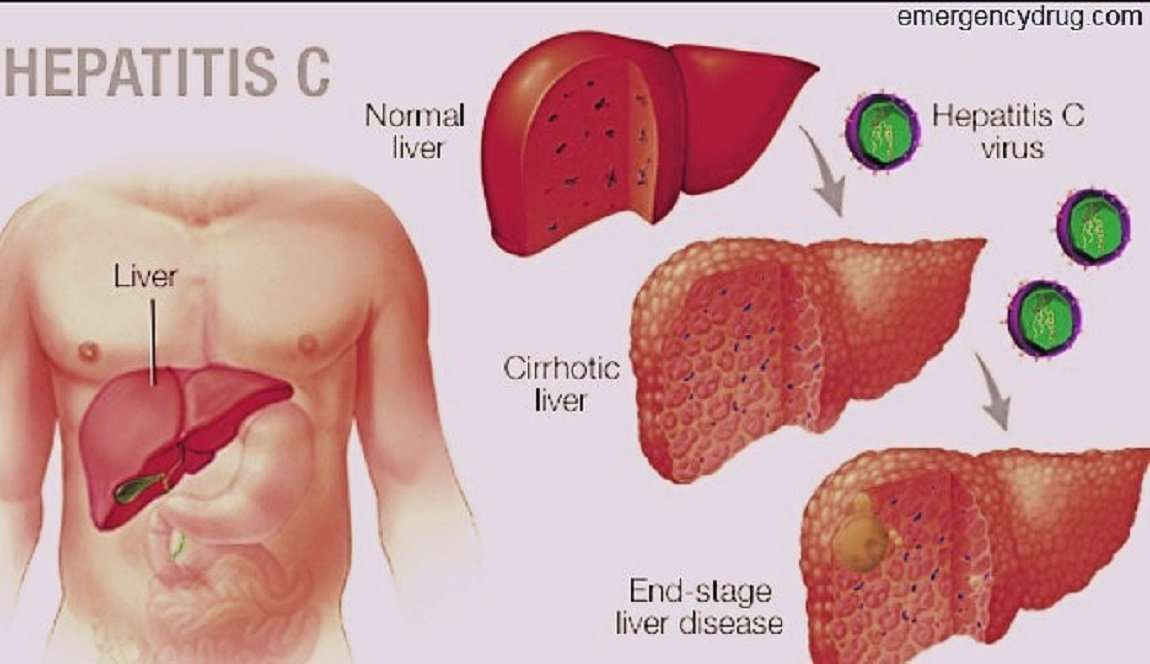What Is Hepatitis C infection?
Mohammad Jewel
06 Jul, 2021

What Is Hepatitis C infection?
What are the causes and symptoms and how it prevent?
This contamination of the liver is caused by the hepatitis C infection. About 3.9 million individuals in the U.S. have the infection. However, it causes couple of indications, so the majority of them don’t have the foggiest idea. There are numerous types of the hepatitis C infection. The most widely recognized in the U.S. is type 1. None is more genuine than some other, however they react diversely to treatment
Hepatitis C is a viral contamination that causes liver aggravation, once in a while prompting genuine liver harm. The hepatitis C infection (HCV) spreads through defiled blood.
Up to this point, hepatitis C treatment required week by week infusions and oral meds that numerous HCV-tainted individuals couldn’t take in view of other medical issues or inadmissible symptoms.
Today, incessant HCV is generally treatable with oral medications taken each day for two to a half year. In any case, about portion of individuals with HCV don’t realize they’re tainted, essentially on the grounds that they have no side effects, which can take a long time to show up. Thus, the U.S. Places for Disease Control and Prevention suggests a one-time screening blood test for everybody at expanded danger of the contamination. The biggest gathering in danger incorporates everybody conceived somewhere in the range of 1945 and 1965 — a populace multiple times bound to be contaminated than those conceived in different years.
Causes
Hepatitis C infection is caused by the hepatitis C virus. The infection spreads when blood contaminated with the virus enters the bloodstream of an uninfected person.
Globally, HCV exists in several distinct forms, known as genotypes. The most common HCV genotype in North America and Europe is type 1. Type 2 also occurs in the United States and Europe, but is less common than type 1. Both type 1 and type 2 have also spread through much of the world, although other genotypes cause a majority of infections in the Middle East, Asia and Africa.
Symptoms
Long haul disease with the hepatitis C infection (HCV) known as unending hepatitis C. Interminable hepatitis C is typically a “quiet” contamination for a long time, until the point when the infection harms the liver enough to cause the signs and manifestations of liver illness. Among these signs and indications are:
- Bleeding easily
- Bruising easily
- Fatigue
- Poor appetite
- Yellow discoloration of the skin and eyes (jaundice)
- Dark-colored urine
- Itchy skin
- Fluid buildup in your abdomen (ascites)
- Swelling in your legs
- Weight loss
Each unending hepatitis C disease begins with an intense stage. Intense hepatitis C more often than not goes undiscovered in light of the fact that it once in a while causes indications. Whenever signs and side effects are available, they may incorporate jaundice, alongside weakness, queasiness, fever and muscle throbs. Intense manifestations seem one to three months after presentation to the infection and most recent two weeks to three months.
Intense hepatitis C disease doesn’t generally end up ceaseless. A few people clear HCV from their bodies after the intense stage, a result known as unconstrained viral freedom. In investigations of individuals determined to have intense HCV, rates of unconstrained viral leeway have fluctuated from 14 to 50 percent. Intense hepatitis C additionally reacts well to antiviral treatment.
Prevention
Protect yourself from hepatitis C infection by taking the following precautions:
- Stop using illicit drugs, particularly if you inject them. If you use illicit drugs, seek help.
- Be cautious about body piercing and tattooing. If you choose to undergo piercing or tattooing, look for a reputable shop. Ask questions beforehand about how the equipment clean. Make sure the employees use sterile needles. If employees won’t answer your questions, look for another shop.
- Practice safer sex. Don’t engage in unprotected sex with multiple partners or with any partner whose health status is uncertain. Sexual transmission between monogamous couples may occur, but the risk is low.
Visit our Hepatitis c treatment Medicine product’s here:
